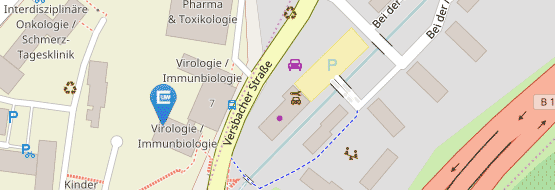Chithelen, Janice
Name: Janice Chithelen
PI: Dr. Prof. Jürgen Schneider-Schaulies
Institute: Institute for Virology and Immunobiology
Funding: Deutscher Akademischer Austausch Dienst (DAAD) PhD Fellow
Project: Measles is a highly contagious disease caused by the measles virus (MV). The basic reproduction number, R0 value is reported to be 12-18 making it a highly infectious pathogen. In contrast, the current estimated R0 value of the ongoing pandemic CoVID-19 SARS-CoV-2 ranges between only 2 to 5. Worldwide, measles infects 10 to 20 million people and causes about 100,000 deaths annually. It’s transmission from infected individuals is via air borne route. Children seem to be the most susceptible population to MV infection. Recent studies reported that acute measles led to an ‘immunological amnesia’ or loss of acquired immunity against other pathogens in unvaccinated children along with prolonged immunosuppression thus overall increasing the risk of other infections. Besides this long lasting immunosuppression, further severe complications caused by measles range from pneumonia to various forms of encephalitis, notably SSPE (subacute sclerosing panencephalitis) which is based on a persistent infection of the brain. In SSPE, MV replicates in neurons and glial cells and spreads from cell to cell while accumulating mutations in the viral genome. As a successful measles-specific therapy is still missing, SSPE leads inevitably to death. The risk to develop SSPE is approximately 1:3000 in children who had acute measles below the age of 5. Thus, a surge in measles cases as expected due to reduced vaccination due to the Covid-19 pandemic may increase the proportion of persistent infections and severe complication cases.
The aim of my project is to study and compare effective inhibition of acute and persistent MV infection using various compounds that target viral activities or host factors (sphingolipid pathway) which possibly aid the virus replication. Primary (proliferating) peripheral blood mononuclear cells (PBMC) and (undifferentiated and differentiated) neural stem cells (NT2-N) will be used as model systems to study the effects of these inhibitors.

